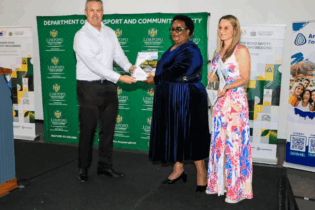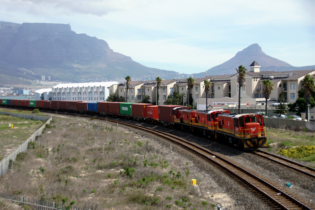Over and above assessing the direct carbon tax cost in South Africa once the verdict is published by National Treasury in February 2012, the country must count the indirect cost of the tax on the competitiveness of its logistics and supply chain sector and the impact that it will have on consumers and end-users.
South Africa’s consistently high cost of logistics, which came in at 13.5% of Gross Domestic Product (GDP) in 2009 according to the 7th Annual State of Logistics™ survey will be negatively impacted due to the proposed taxation levels. The proposed carbon tax will, according to Marius Swanepoel, IMPERIAL Logistics Chief Executive Officer need to be “counteracted with greener, more efficient supply chains.” Dr. Jan Havenga, Head: Centre for Supply Chain Management at Stellenbosch University, who projects the total cost of logistics to be approximately 15% of GDP for 2010 comments that in 2009, the transport and communication sector paid around R12 billion in company taxes. “A carbon tax could increase the effective tax rate of the industry by at least 14,5%,” Havenga says. “This would in all likelihood make South African logistics costs much higher and would mean that the competitiveness of the country would be under further threat.” When assessed by the industry calculations indicate that including the carbon tax, the total transport industry bill would increase by between R1.8 and R6.0 billion per year for the emission tax of transport only. In essence, an increase of between 1.16% and 3.86% on the transport bill is forecasted depending on the final tax implemented.Sharmini Naidoo, The Road Freight Association’s Chief Executive Officer believes that this increase is a cost the road freight industry can ill afford. “Transport operators are already faced with numerous rising costs and the proposed carbon tax would have a serious impact on the cost of logistics, rendering road transport uneconomical,” she says. Over 80% of freight is currently moved by road. “Ironically it is the SMMEs who would be most severely impacted by the tax – the very sector Government aims to support. Not only this, but the tax will also impede economic growth and job creation.”
Swanepoel adds, “The industry is moving forward in greening supply chains through innovative thinking and investment. Examples include South Africa’s first Euro 5 specification fleets on our roads, cutting carbon emissions and increasing efficiencies through ‘extra distance’ studies and network redesign, as well as application of renewable energy sources.”
Governments globally have tended to introduce carbon taxation first, followed by emissions trading as a secondary means to curb carbon emissions. He says, many countries including Finland, the Netherlands and United Kingdom have tended to offset the increase in carbon taxes with decreases in other taxes or use of revenue for climate mitigation programmes. “In South Africa, there is currently no middle road planned. Some, such as climate change economist and World Bank advisor Michael Toman view the country’s serious examination of a carbon tax to be “commendable, particularly given that the step is “unique” among emerging-market economies.”Other people view the anticipated tax as a further burden to be borne by business. Swanepoel concludes, “Even at the lower R72/ton rate, the estimated R100bn likely to be generated from a carbon tax equates to between 12% and 13% of Treasury’s total tax take. This revenue must be channeled into our country’s pursuit for finding sustainable, innovative solutions for cleaner energy that is accessible to all.” Submitted by Imperial Logistics




